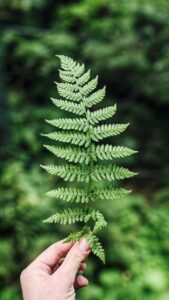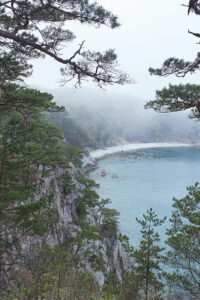Why Being in Nature is Good for You
With the increased use of technology in our daily lives, the cure for that tired and groggy feeling after too much screen time may be as simple as getting up and going for a walk. Studies indicate that seeking out green space can not only make you feel better, but can boost creativity, reduce anxiety and may help with other more serious ailments. There is now a growing body of scientific evidence that spending just 120 minutes per week in a natural setting is enough time to reap the benefits of being in nature.
“The clearest way into the Universe is through a forest wilderness.”
John Muir
 Healing through nature is not a new phenomenon. Famous naturalist John Muir may have been ahead of his time when he recommended ambling walks through the woods to help clear the mind. The Japanese have also been practicing forest bathing (Shinrin-yoku), a form of ecotherapy since the 80s. They discovered that when people spend more time in the forest it drastically improves their mood. Breathing fresh forest air has positive measured effects on our health. The science behind this phenomenon is that conifer trees emit forest aerosols, that fresh piney scent that we know and love. According to the study found here, fresh organic compounds, called terpenes have been proven to have anti-inflammatory, antioxidant, analgesic and even anti-tumour properties.
Healing through nature is not a new phenomenon. Famous naturalist John Muir may have been ahead of his time when he recommended ambling walks through the woods to help clear the mind. The Japanese have also been practicing forest bathing (Shinrin-yoku), a form of ecotherapy since the 80s. They discovered that when people spend more time in the forest it drastically improves their mood. Breathing fresh forest air has positive measured effects on our health. The science behind this phenomenon is that conifer trees emit forest aerosols, that fresh piney scent that we know and love. According to the study found here, fresh organic compounds, called terpenes have been proven to have anti-inflammatory, antioxidant, analgesic and even anti-tumour properties.
Curious to dive deeper? There are a growing number of books on the subject of trees and the complex world both above and below the ground. Scientist and professor of forest ecology, Dr. Suzanne Simard wrote the groundbreaking book Finding the Mother Tree: Discovering the Wisdom of the Forest, which uncovers the way trees communicate in the forest setting and author Peter Wohlleben penned the wildly popular book The Hidden Life of Trees. Both are worth a read – ideally while sitting underneath the branches of a nearby Fir or Maple.
“Forests hide wonders that we are only beginning to explore.”
Peter Wohlleben
 The advantages of spending time outdoors doesn’t stop in the forest. Ever wonder why you feel so great after inhaling a lungful of invigorating ocean air? Scientists have suggested that oxygen atoms found near blue space (aquatic regions like oceans and waterfalls) contain extra electrons which can be used as a form of negative ion therapy to help with seasonal affective disorder.
The advantages of spending time outdoors doesn’t stop in the forest. Ever wonder why you feel so great after inhaling a lungful of invigorating ocean air? Scientists have suggested that oxygen atoms found near blue space (aquatic regions like oceans and waterfalls) contain extra electrons which can be used as a form of negative ion therapy to help with seasonal affective disorder.
And the science doesn’t stop there. It’s not only what we are breathing that may help us relax outdoors: nature sounds and soundscapes can also contribute to our sense of well-being. (Think of the calming effects of a soft breeze rustling through the leaves or the ebb and flow of the ocean as it laps the shore.
Don’t live near the open sea? Here are some related ideas to get you going:
- Heading outside to stargaze (dark nature) counts as positive outdoor time. Studies indicate that time spent staring into the cosmos may increase our sense of awe in the natural world and may provide us mere mortals with a feeling of profound peace.
- Committing to walk regularly with a friend or group can help clock in more outdoor time. Seeking other outdoor enthusiasts via online meetup groups is another great way to up your weekly nature therapy. Here in Victoria BC, why not check out Victoria Nature Walks, a weekly meetup of like-minded walkers.
- Need inspiration for new walking and hiking trails? Try Theo Dombrowski’s series of useful guide books such as Popular Day Hikes: Vancouver Island — Revised & Updated (RMB 2019) or check out these 10 top rated hiking trails on Vancouver Island.
The best part of nature therapy is that it is free and easy to get started. Just don your outdoor shoes, throw on a jacket and head to the nearest park to start feeling the benefits of the great outdoors.